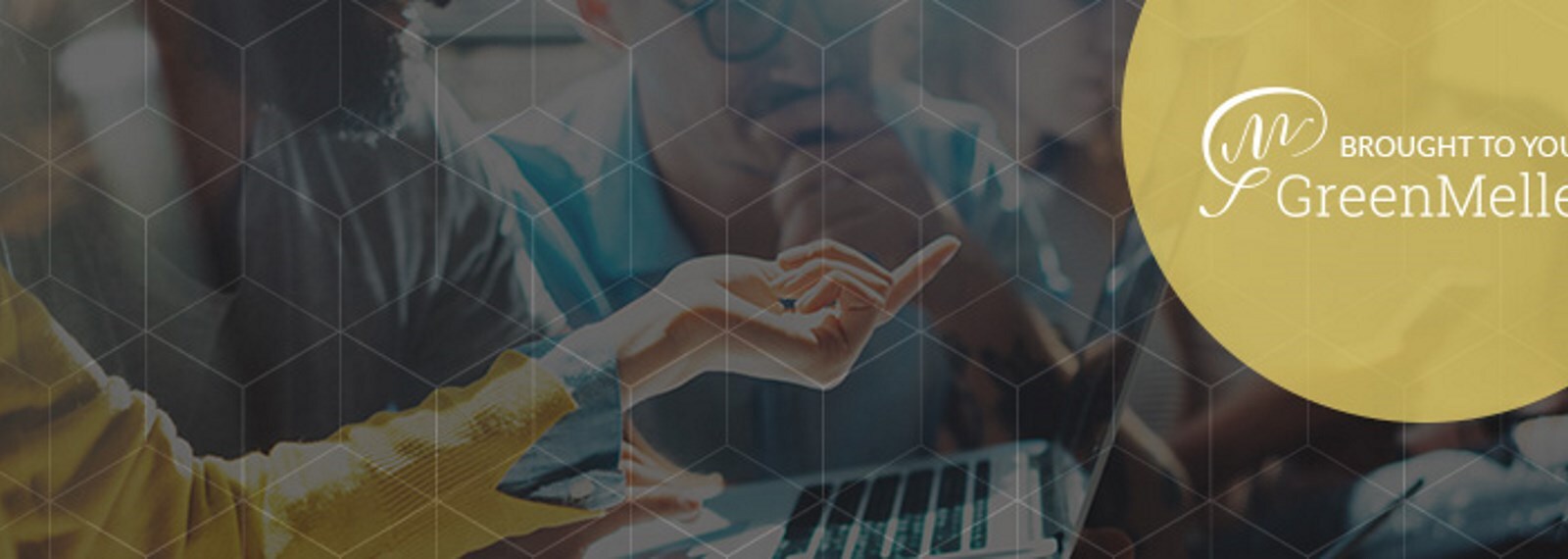

8.6K
Downloads
88
Episodes
Running a business is daunting. There are too many things to keep track of and everything seems to cost money. So how do you actually grow your company without going crazy or broke? At GreenMellen, we understand the challenges of being business owners. As a digital marketing agency for over a decade, we've got experience helping businesses grow using the latest technology and marketing best practices. The Brighter Web podcast is aimed at sharing practical advice. The show is hosted by GreenMellen partner Mickey Mellen & marketing manager Robert Carnes. Join us to learn about effective organizational processes and digital marketing insights.
Running a business is daunting. There are too many things to keep track of and everything seems to cost money. So how do you actually grow your company without going crazy or broke? At GreenMellen, we understand the challenges of being business owners. As a digital marketing agency for over a decade, we've got experience helping businesses grow using the latest technology and marketing best practices. The Brighter Web podcast is aimed at sharing practical advice. The show is hosted by GreenMellen partner Mickey Mellen & marketing manager Robert Carnes. Join us to learn about effective organizational processes and digital marketing insights.
Episodes

Thursday Aug 08, 2024
Copywriting with Jessica Fralin
Thursday Aug 08, 2024
Thursday Aug 08, 2024
Communicating clearly is a cornerstone of effective marketing. But how do you maintain a consistent message across various digital platforms? It begins with great marketing copywriting. To unpack this underappreciated art, we invited freelance copywriter Jessica Fralin on the podcast.
Links

Thursday Jul 25, 2024
Digital Ads with Mike Scott
Thursday Jul 25, 2024
Thursday Jul 25, 2024
Despite what you might think, effective digital marketing isn’t free. It takes time and knowledge, and it can often require paid advertising to reach new audiences. The digital ad landscape can be overwhelming, so we invited our friend Mike Scott from Manticore Marketing to walk us through how any small business can get started with ads.
Links

Thursday Jul 11, 2024
Public Relations with Cindy Miller
Thursday Jul 11, 2024
Thursday Jul 11, 2024
Your company’s brand is built on how you’re perceived by the general public. Therefore, managing your reputation among consumers using public relations is a valuable practice in branding. Cindy Miller is a PR expert with years of experience and the CEO of Cindy Miller Communications. She spoke with Mickey about the value of public relations and how you can get started with PR at your small business.
Links

Thursday May 23, 2024
Project Management with Brooke Desmond
Thursday May 23, 2024
Thursday May 23, 2024
Even if it’s not in your job title or description, you’re likely somewhat familiar with project management. However, it’s not a responsibility everyone fully understands or embraces. This makes project management one of the most underrated and underappreciated parts of business and marketing. We invited GreenMellen’s project manager, Brooke Desmond, on to discuss how we can all improve our project management.

Thursday May 09, 2024
Marketing Agencies with Ali Green
Thursday May 09, 2024
Thursday May 09, 2024
What is it like to start and run a marketing agency? Our co-host Mickey Mellen invites his co-founder Ali Green to the show to discuss building GreenMellen together. This is a peek behind the curtain of how a digital marketing agency works and what it takes to operate smoothly.

Thursday Apr 25, 2024
Search Engine Optimization with Bobby Kircher
Thursday Apr 25, 2024
Thursday Apr 25, 2024
Is SEO still relevant to marketers, especially with recent changes with technology? The short answer is yes, and we invited search expert Bobby Kircher to discuss why. Let’s make search optimization practical and achievable for small businesses like yours.
Links
- Bobby’s website: https://bobbykircher.com/
- Papaya Search: https://papayasearch.com/
- Bobby on LinkedIn: https://www.linkedin.com/in/bobbykircher/

Thursday Apr 11, 2024
Content Marketing with Adam Walker
Thursday Apr 11, 2024
Thursday Apr 11, 2024
Is your small business struggling with content marketing? In this episode, we invited on our friend Adam Walker to talk about repurposing content for different platforms. These simple tips will help you scale your marketing strategy to reach a wider audience and save time.
Links
- Adam’s Website: https://adamjwalker.com/
- Tech Talk Ya’ll on Spotify: https://podcasters.spotify.com/pod/show/techtalkyall/
- Together Letters: https://www.togetherletters.com/
- Edgewise Media: https://edgewise.media/
- Adam’s Newsletter on Substack: https://adamjwalker.substack.com/
- Adam on LinkedIn: https://www.linkedin.com/in/adamjwalker/

Thursday Dec 21, 2023
Special Announcement: A New Podcast Format
Thursday Dec 21, 2023
Thursday Dec 21, 2023
After 60 episodes of the Brighter Web podcast, we're changing things up. Starting in 2024, we're bringing guests to the show and talk about digital marketing topics. We'll be back in a few months with some new, slightly different-sounding episodes.

Thursday Dec 07, 2023
Optimizing Website Conversions to Grow Your Business
Thursday Dec 07, 2023
Thursday Dec 07, 2023
There’s no shortage of digital metrics to measure, but conversions are perhaps the most important. These are the actions that actually help your business to grow. But how do you measure and improve your conversions online?
What are website conversions?
- Form fill
- Download a file
- Watch a video
- Purchase
- Donate
What is conversion optimization?
- Making adjustments to your website to get people to take a desired action
- It’s an ongoing process that you must test and adjust
- Rand Fishkin (Sparktoro) - Precise attribution is hard to measure. Share our Blumer story.
- Less attribution, more refinement of optimization
Why does conversion matter?
- Because these are the actions to help your business grow
- Without a desired action, what are you aiming for?
- This is where the true value of marketing comes in
How do you get people to convert more?
- Pick a single call to action
- Make it clear how to take action
- Focus the content on the page around the action
- Give people multiple opportunities to click a call to action
- Make small changes and test to see how people react — A/B testing
How do you measure conversion rates?
- Count the number of conversions
- Count the number of website users
- Divide the former by the later
- You can also divide up the specific types of conversions
- This can be done directly in Google Analytics 4 (with help from Google Tag Manager)
Do platforms outside of your website influence conversions?
- Yes! It matters how people view your brand before seeing your website.
- It matters what landing page they come to
- It matters how many times & ways they’ve encountered your brand

Thursday Nov 23, 2023
10 Ways to Monetize Your Digital Marketing Content
Thursday Nov 23, 2023
Thursday Nov 23, 2023
The internet is about far more than just making money—but that’s certainly something you can do. Content creators have found plenty of ways to earn income from the digital stuff they make.
This list is far from comprehensive, but here are 10 big buckets of ways to make money from the content you create online.
- Selling a service (like GreenMellen)
- Website development
- Coaching or consulting
- Graphic design
- Freelance writing
- Selling a physical product online
- E-commerce
- Swag
- Books
- Selling a digital product
- Ebooks and resources
- WordPress themes
- WordPress plugins
- Document templates
- Selling an online course
- Create a private membership forum
- Post Status
- Mighty Networks
- Private newsletter
- Accept donations
- Sponsorships
- Mostly for podcasts
- Directly on Anchor
- Website ads
- Google AdSense (and similar)
- Direct sponsorships
- Affiliate marketing
- Promoting products
- Getting a cut of the sales
- Amazon Affiliate links
- Publishing videos
- YouTube monetization
- Not just with ads, but to help promote other content